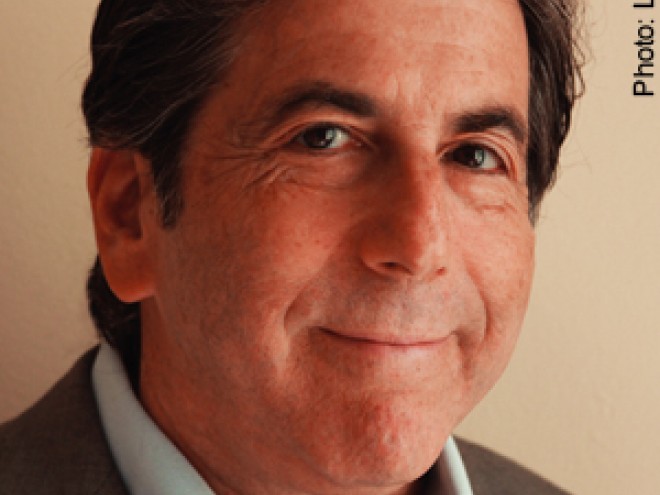The Ice Cream Queen of Orchard Street by Susan Jane Gilman is a very enjoyable and insightful book. Spanning over seventy years, from the early 1900s to the late 1980s, this novel encompasses many side stories. Gilman weaves in the rise of a woman ice cream mogul with an immigrant’s story, the twentieth century American Jewish desire to assimilate, women’s rights issues, poverty, world wars, McCarthyism, the youth movement of the Sixties, Reagan’s trickle-down economics, and the overreach of government.
Elise Cooper interviewed Gilman for the Jewish Book Council.
 Elise Cooper: You’ve already had a lot of success with your past nonfiction work. Why did you decide to write a novel?
Elise Cooper: You’ve already had a lot of success with your past nonfiction work. Why did you decide to write a novel?
Susan Jane Gilman: I have written a memoir, short stories, and now this novel, which I worked on for three years. Each book seems to get exponentially harder and longer. I don’t want to do the same thing over and over again. In fact for my next book I have about twelve different ideas in my head.
EC: How did you get the idea for this book?
SJG: I love ice cream! I saw these Carvel Ice Cream ads that said ‘Please eat my ice cream.’ On a whim I Googled Tom Carvel and learned that he was a Greek immigrant who went from rags to riches; then I found out about the Mattuses, the founders of the Häagen Dazs chain, who were also immigrants. Since these founders were generally nice people who loved to give to charity and loved children, I knew I had to put some drama in the story. I created Lillian, a modern female anti-hero who is a combination of Scarlett O’ Hara and Leona Helmsley. The theme of this book is the moral complexity of people.
EC: How would you describe Lillian, the novel’s protagonist?
SJG: Lillian is a businesswoman who sells ice cream to the public under the guise of a motherly figure. But she also is mean-spirited, difficult, and manipulative. She has a lot of chutzpah. I would not want to work for her or even be around her, but I do love her. She is animated, curious, and whip smart; she is fiercely protective of what she has created and the people she loves. I wanted to create a character who is unlikable in certain ways and very lovable in others. I think that most humans have two sides. I hope readers find her exasperating, interesting, and funny. She had everything go against her early on — she is orphaned, disabled, Jewish, poor, an immigrant, a female — yet she is able to overcome all these obstacles and to become very successful.
EC: Why did you make Lillian — neé Malka — Jewish?
SJG: In all my books I have my voice and perspective. Being Jewish is who I am; the same is true for Lillian. She is who she is because of her environment. Jews came to the U.S. because they were hunted and slaughtered. They have this edge and an added incentive to not look back. Brutality seems to be a particular Jewish experience that we had to face as a culture for years, and living by one’s wits is in our blood stream. Lillian remained very much a Jew, which is intrinsic to who she is.
EC: Did you intend to discuss women’s issues when you set out to write the book?
SJG: Yes. I wanted to expand on the way women are portrayed in our culture. That is why I put the scene in where a businessman tells Lillian, ‘I don’t do business with women.’ I don’t see a lot of women anti-heroes in literature. If you noticed, this is a story of “Beauty and The Beast” in reverse, since she has a gorgeous husband. She became the brains and he the brawn. I also included the age-old issue for women: our American culture punishes women for not staying young.
EC: Describe your research process for this book.
SJG: I called the Carvel Corporation which put me in touch with one of the oldest stores over in Long Island. The owner, Mr. Gizagidze, told me all the ins and outs of the ice cream business. I met everyone who worked there and even worked behind the counter, although they did keep me away from the ice cream — I think they knew I had an ulterior motive: I could have opened my mouth under the spigot and poured ice cream straight down my throat. I also went to Gelato University in Bellona. I took a Gelato ice cream making class there, where I learned that the sweetness of ice cream is the product of science, mathematics, and chemistry. I think ice cream relates to the American Jewish experience. We love sweetness and goodness. Think of honey and apples on Rosh Hashanah. Food is a huge part of our culture
 EC: So which is better, Gelato or ice cream? What is your favorite flavor?
EC: So which is better, Gelato or ice cream? What is your favorite flavor?
SJG: This is like asking me to choose my favorite child! Right now I am on a Gelato kick since I live in Europe. However, I am going to be in America for my book tour and I will have to compare the different types. My favorite ice cream flavors are Mint Chip and Chocolate.
EC: What would you like readers to get out of the book?
SJG: I think the book is bitter sweet, a little dark, and a provocative, interesting read. It is about people’s complexity. It is my valentine to NYC and my people.
Elise Cooper lives in Los Angeles and has written numerous national security articles supporting Israel. She writes book reviews and Q and A’s for many different outlets including the Military Press. She has had the pleasure to interview bestselling authors from many different genres.
Related Content:
- JBC Network Titles 2014 – 2015
- Helena Rubinstein and the Women’s Liberation Movement by Michèle Fitoussi
- Reading List: American Immigrant Tales



